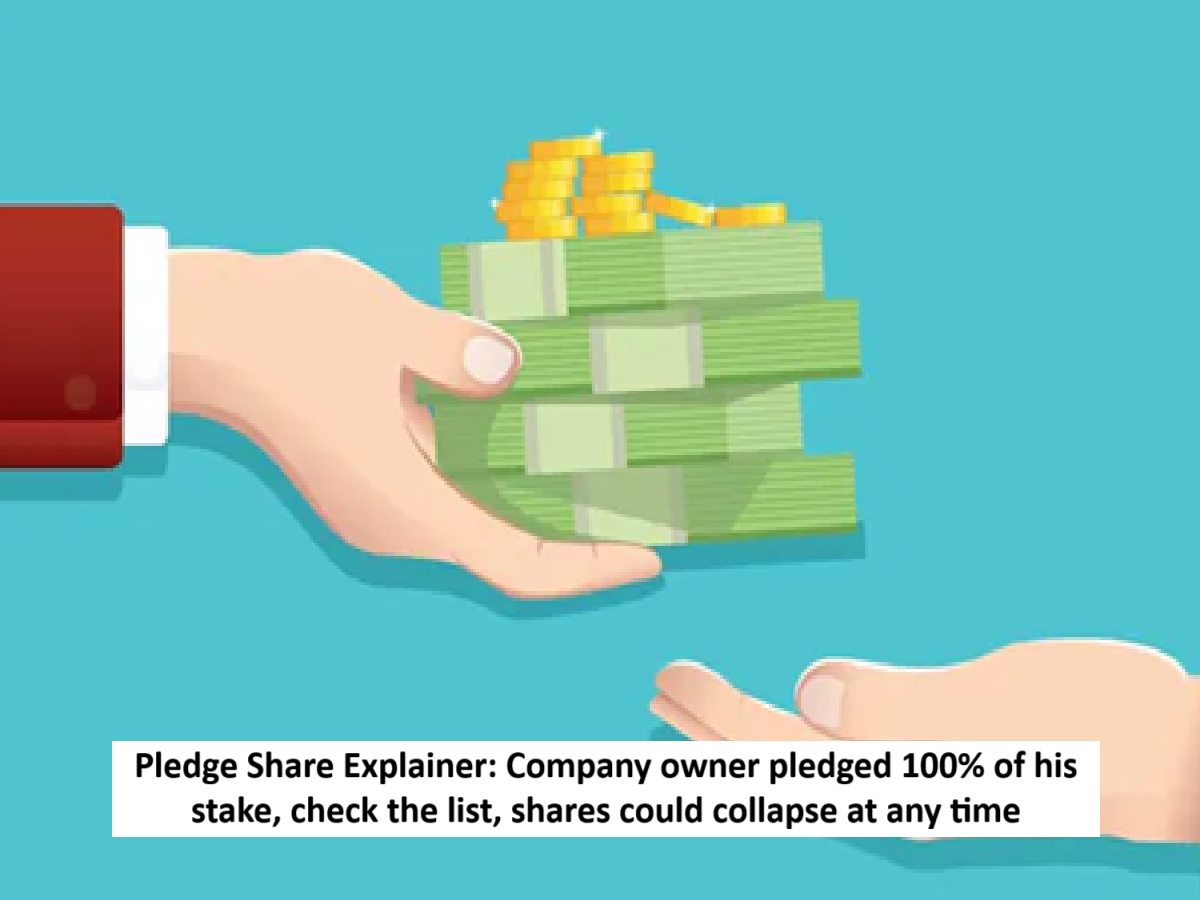
News Topical, Digital Desk : In the stock market, the pledge of shares by a company's promoters is considered a signal that can indicate both good and bad things. If the promoters' entire or substantial stake is pledged, it indicates a strain on the company's financial health. The list below shows that promoters of some companies have pledged nearly 100% of their stake. Investors should be cautious, as this trend could lead to a significant decline in share prices.
| Company name | Promoter's Pledged Shareholding (%) |
| Cohance Life | 100% |
| Thyrocare Tech | 100% |
| Bajaj Hindusthan | 100% |
| Vedanta | 99.99% |
| Polyplex Corp | 99.94% |
| India Shelter Fin | 96.96% |
| Gokaldas Exports | 96.28% |
| Hindustan Zinc | 92.26% |
| 360 One | 89.62% |
| Health Global | 88% |
What does it mean to pledge shares?
When a company promoter pledges their shares, they use them as collateral to obtain a loan from a bank or NBFC. This means that if the loan is not repaid, the financier can sell those shares.
If the share price falls, a margin call is triggered, meaning the promoter may have to pledge more shares or repay the loan. This increases pressure on the share price. If the promoter does neither, the bank or finance company that pledged the shares sells them in the open market.
Why is this a dangerous sign? Experts say that when promoters' stake is 80-100% pledged, it indicates a significant debt burden on the company. If the share price suddenly falls, the financier can sell the pledged shares, leading to a further decline in the stock. This indicates that the company's cash flow situation is weak, and the promoters are likely to need external funding. This signals to the market that promoters themselves are unable to trust their own shares, leading retail investors to distance themselves.
What should investors do? Investing in companies where promoter stakes are pledged in excess of 80% is extremely risky. A promoter pledge can only be considered safe if the company has strong cash generation and loan servicing capabilities. Don't base your decision solely on pledge data; also consider the company's earnings, profits, interest coverage, and promoter track record. If promoters are reducing their pledges, it's a sign of improvement. However, if they're increasing, risks are rising. Falling into the "Promoters' Pledge Trap" can prove costly for investors. In companies like Vedanta, Hindustan Zinc, Gokaldas Exports, or Bajaj Hindusthan, almost the entire stake is pledged. Therefore, it's important to understand the company's debt profile and the promoter's intentions before investing. Always remember: small investors should be cautious where the owner is deeply in debt.
Read More: Q1 Results: Profit jumps 35%, margins improve, earnings rise by ₹394 crore, keep an eye on the stock
--Advertisement--

 Share
Share



